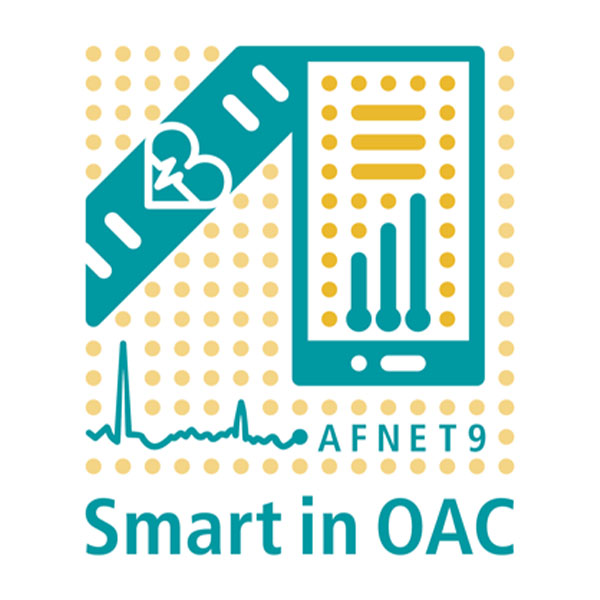
Smart in OAC-AFNET 9
Remote, investigator-initiated Smartphone and wearable detected atrial arrhythmia in Older Adults Case finding study
Study Design
Multi-centre, multi-national, investigator-initiated, single-arm case-finding study of a cloud based analytic service as screening tool to detect and quantify episodes of atrial arrhythmia using an automated, wearable photoplethysmography-based monitoring system.

Inclusion criteria:
![]() 65 years or older
65 years or older
![]() Willing and able to provide informed consent
Willing and able to provide informed consent
![]() Owning a mobile phone compatible with the PPG-wearable
Owning a mobile phone compatible with the PPG-wearable
![]() No known AF
No known AF
![]() No current or planned oral anticoagulation treatment
No current or planned oral anticoagulation treatment
Exclusion criteria
![]() Known AF
Known AF
![]() Known current or planned oral anticoagulation treatment
Known current or planned oral anticoagulation treatment
hypothesis
Simplified detection of atrial arrhythmias via consumer-electronics enables earlier therapy in at-risk populations.
Conclusion
Remote, digitally supported consumer-electronics-based screening is feasible in older European adults and identifies atrial arrhythmias in 5% of participants within 4 weeks of monitoring
PATIENTS
STUDY sites
Study duration
Start of study
2021
End of study
2022
Publications
Fabritz Larissa, Connolly D., Czarnecki E., Dudek D., Zlahoda-Huzior A., Guasch E., Haase D., Huebner T., Jolly K., Kirchhof P., Schotten Ulrich, Zapf Antonia, Schnabel Renate B: Remote Design of a Smartphone and Wearable Detected Atrial Arrhythmia in Older Adults Case Finding Study: Smart in OAC – AFNET 9. Frontiers in Cardiovascular Medicine, (2022), 9 https://www.frontiersin.org/article/10.3389/fcvm.2022.839202
Coordinating Investigator

Prof. Larissa Fabritz
Birmingham
More information
sponsor
Kompetenznetz Vorhofflimmern e.V. (Atrial Fibrillation NETwork, AFNET), Münster, Germany